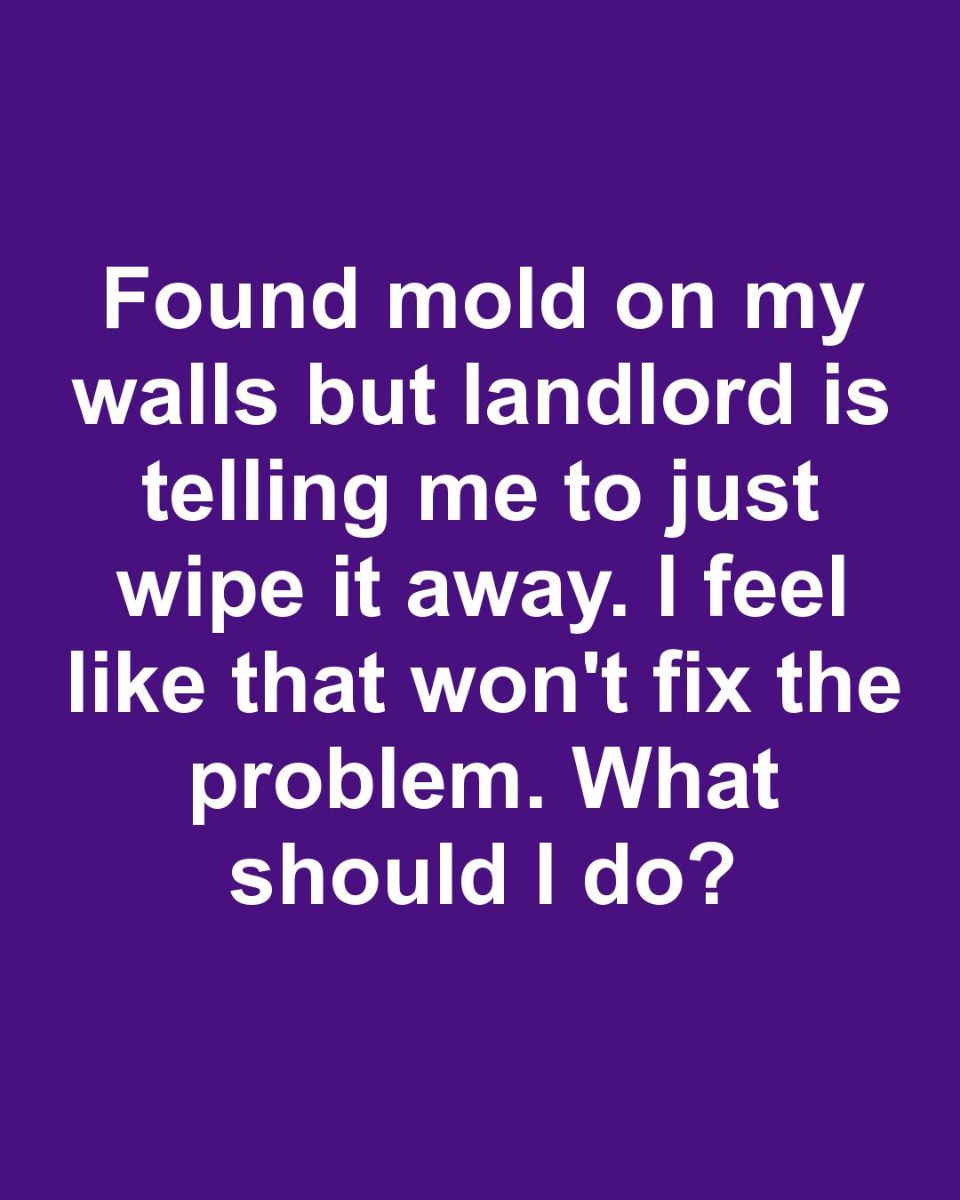Health Risks Associated with Mold Exposure

What should I do?
Exposure to mold can lead to a variety of health problems, particularly for individuals with allergies, asthma, or weakened immune systems. Common symptoms include respiratory issues, skin irritation, eye irritation, and nasal congestion. In severe cases, mold exposure can lead to more serious health conditions, such as lung infections. It’s important to take mold growth seriously and address it promptly to protect your health and well-being.
Legal Responsibilities of Landlords Regarding Mold
Landlords have a legal obligation to provide tenants with a safe and habitable living environment. This includes addressing mold issues that arise due to structural problems or maintenance failures. While specific laws regarding mold vary by jurisdiction, landlords are generally required to fix leaks, ensure proper ventilation, and address any conditions that contribute to mold growth. Tenants should familiarize themselves with local housing codes and tenant rights to understand their landlord’s responsibilities.
Steps to Take When Mold is Discovered
If you discover mold in your rental property, it’s important to take immediate action. Start by documenting the mold with photos and notes about the location and extent of the growth. Notify your landlord in writing, detailing the problem and requesting prompt remediation. Keep records of all communications and responses. If the landlord is unresponsive or unwilling to address the issue, consider seeking advice from a tenant’s rights organization or legal counsel.
Documenting the Mold Issue for Your Records
Thorough documentation is crucial when dealing with mold issues in a rental property. Take clear, dated photographs of the mold and any related damage. Keep copies of all correspondence with your landlord, including emails, letters, and text messages. Document any health symptoms you or your family members experience that may be related to mold exposure. This documentation can be valuable if you need to take legal action or negotiate with your landlord.
Communicating Effectively with Your Landlord
Effective communication with your landlord is key to resolving mold issues. Be clear and concise in your communications, providing specific details about the mold problem and its impact on your living conditions. Request a timeline for remediation and express your willingness to cooperate in resolving the issue. If your landlord is unresponsive, consider sending a formal letter or seeking mediation through a tenant’s rights organization.
Seeking Professional Mold Assessment and Remediation
In many cases, professional assessment and remediation are necessary to effectively address mold problems. A qualified mold inspector can identify the source of moisture and assess the extent of the contamination. Professional remediation services can safely remove mold and repair any damage. If your landlord is unwilling to hire professionals, you may need to explore your legal options to ensure the issue is properly addressed.
Exploring Tenant Rights and Legal Options
Tenants have rights when it comes to mold issues, and it’s important to understand what legal options are available. Research local housing laws and tenant rights to determine what actions you can take if your landlord fails to address mold problems. This may include withholding rent, breaking your lease, or taking legal action. Consulting with a lawyer or tenant’s rights organization can provide guidance on the best course of action.
Preventive Measures to Avoid Future Mold Growth
Preventing mold growth involves controlling moisture levels in your home. Ensure proper ventilation in areas prone to moisture, such as bathrooms and kitchens. Use dehumidifiers if necessary, and promptly address any leaks or water damage. Regularly clean and inspect areas that are susceptible to mold growth. By taking these preventive measures, you can reduce the risk of mold returning in the future.
Conclusion: Ensuring a Safe and Healthy Living Environment
Dealing with mold in a rental property can be challenging, but it’s important to take action to protect your health and well-being. By understanding the problem, communicating effectively with your landlord, and seeking professional help when necessary, you can ensure that your living environment is safe and healthy. Remember to document everything and explore your legal rights if needed. Taking these steps will help you address mold issues effectively and prevent future problems.
